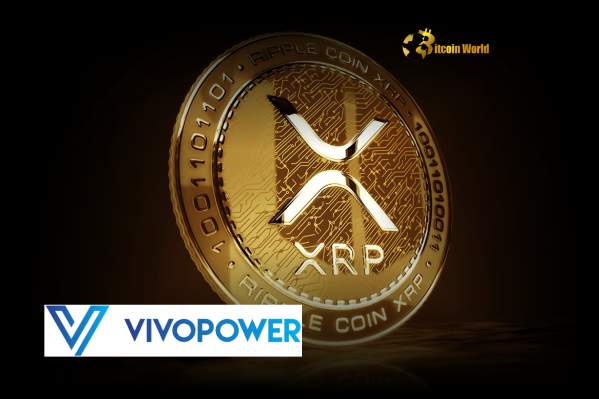June 2, 2025
In a significant development within the cryptocurrency sector, Hong Kong-based logistics firm Reitar and Australian energy solutions company VivoPower have made headlines with their innovative approaches to crypto treasury strategies. These moves reflect a broader trend of traditional companies integrating digital assets into their financial operations.
Reitar’s Ambitious Bitcoin Acquisition Plan
Reitar, a Hong Kong-based logistics technology company, has announced plans to acquire $1.5 billion worth of Bitcoin as part of its corporate treasury strategy. This bold move positions Reitar among the ranks of companies like MicroStrategy and Tesla, which have previously incorporated Bitcoin into their balance sheets.
The decision underscores a growing trend among corporations to diversify their reserves with digital assets, aiming to hedge against inflation and currency devaluation. Reitar’s acquisition is seen as a strategic alignment with Hong Kong’s evolving stance on cryptocurrency, as the region continues to position itself as a global crypto hub.
VivoPower’s XRP-Focused Treasury Strategy
Simultaneously, VivoPower, an Australian energy solutions company, has raised $121 million to launch an XRP-focused treasury strategy. This initiative aims to make VivoPower the first publicly traded company to hold XRP as a primary treasury asset. The strategy is backed by significant institutional support, including involvement from Saudi royal investors.
VivoPower’s move into the cryptocurrency space is part of a broader trend of traditional companies exploring digital assets for treasury management. The company’s focus on XRP, a digital asset known for its utility in cross-border payments, reflects a strategic interest in leveraging blockchain technology to enhance financial operations.
Implications for the Broader Market
The actions of Reitar and VivoPower signal a shift in how traditional companies perceive and utilize digital assets. By integrating cryptocurrencies into their treasury strategies, these companies are not only diversifying their financial portfolios but also signaling confidence in the long-term viability of digital assets.
This trend is expected to encourage other companies to explore similar strategies, potentially leading to greater institutional adoption of cryptocurrencies. As regulatory frameworks around digital assets continue to develop, companies are likely to seek clarity and guidance to navigate this evolving landscape.


 Bitcoin
Bitcoin  Ethereum
Ethereum  Tether
Tether  XRP
XRP  Solana
Solana  USDC
USDC  Dogecoin
Dogecoin  TRON
TRON  Cardano
Cardano  Lido Staked Ether
Lido Staked Ether  Wrapped Bitcoin
Wrapped Bitcoin  Hyperliquid
Hyperliquid  Wrapped stETH
Wrapped stETH  Sui
Sui  Chainlink
Chainlink  Avalanche
Avalanche  Stellar
Stellar  LEO Token
LEO Token  Bitcoin Cash
Bitcoin Cash  Toncoin
Toncoin  Shiba Inu
Shiba Inu  Hedera
Hedera  USDS
USDS  WETH
WETH  Litecoin
Litecoin  Wrapped eETH
Wrapped eETH  Monero
Monero  Polkadot
Polkadot  Binance Bridged USDT (BNB Smart Chain)
Binance Bridged USDT (BNB Smart Chain)  Ethena USDe
Ethena USDe  Bitget Token
Bitget Token  Pepe
Pepe  Pi Network
Pi Network  Coinbase Wrapped BTC
Coinbase Wrapped BTC  WhiteBIT Coin
WhiteBIT Coin  Aave
Aave  Uniswap
Uniswap  Dai
Dai  Bittensor
Bittensor  Ethena Staked USDe
Ethena Staked USDe  Aptos
Aptos  Cronos
Cronos  NEAR Protocol
NEAR Protocol  OKB
OKB  BlackRock USD Institutional Digital Liquidity Fund
BlackRock USD Institutional Digital Liquidity Fund  Internet Computer
Internet Computer  Jito Staked SOL
Jito Staked SOL  Ethereum Classic
Ethereum Classic  Ondo
Ondo  sUSDS
sUSDS  Tokenize Xchange
Tokenize Xchange  Gate
Gate  Mantle
Mantle  Official Trump
Official Trump  USD1
USD1  Artificial Superintelligence Alliance
Artificial Superintelligence Alliance  VeChain
VeChain  Render
Render  Cosmos Hub
Cosmos Hub  Ethena
Ethena  POL (ex-MATIC)
POL (ex-MATIC)  Lombard Staked BTC
Lombard Staked BTC  Worldcoin
Worldcoin  Arbitrum
Arbitrum  Filecoin
Filecoin  Algorand
Algorand  Jupiter
Jupiter  Binance-Peg WETH
Binance-Peg WETH  Jupiter Perpetuals Liquidity Provider Token
Jupiter Perpetuals Liquidity Provider Token  Celestia
Celestia  KuCoin
KuCoin  Binance Staked SOL
Binance Staked SOL  USDT0
USDT0  Bonk
Bonk  Sonic
Sonic  Rocket Pool ETH
Rocket Pool ETH  NEXO
NEXO  Injective
Injective  Virtuals Protocol
Virtuals Protocol  Stacks
Stacks  Story
Story  Optimism
Optimism  SPX6900
SPX6900  Sei
Sei  Immutable
Immutable  Fartcoin
Fartcoin  Binance Bridged USDC (BNB Smart Chain)
Binance Bridged USDC (BNB Smart Chain)  PayPal USD
PayPal USD  Mantle Staked Ether
Mantle Staked Ether  Maker
Maker  Solv Protocol BTC
Solv Protocol BTC  dogwifhat
dogwifhat  Polygon Bridged USDT (Polygon)
Polygon Bridged USDT (Polygon)  StakeWise Staked ETH
StakeWise Staked ETH  The Graph
The Graph  Curve DAO
Curve DAO  Wrapped BNB
Wrapped BNB  Renzo Restaked ETH
Renzo Restaked ETH  Arbitrum Bridged WBTC (Arbitrum One)
Arbitrum Bridged WBTC (Arbitrum One)  Zcash
Zcash  Tether Gold
Tether Gold  Jupiter Staked SOL
Jupiter Staked SOL  clBTC
clBTC  FLOKI
FLOKI  PAX Gold
PAX Gold  PancakeSwap
PancakeSwap  Theta Network
Theta Network  Lido DAO
Lido DAO  GALA
GALA  Marinade Staked SOL
Marinade Staked SOL  Ethereum Name Service
Ethereum Name Service  JasmyCoin
JasmyCoin  IOTA
IOTA  Core
Core  Raydium
Raydium  Pendle
Pendle  Pyth Network
Pyth Network  BitTorrent
BitTorrent  The Sandbox
The Sandbox  Stables Labs USDX
Stables Labs USDX  Bitcoin SV
Bitcoin SV  OUSG
OUSG  Walrus
Walrus  Kaia
Kaia  Pudgy Penguins
Pudgy Penguins  Solv Protocol Staked BTC
Solv Protocol Staked BTC  Usual USD
Usual USD  Jito
Jito  Polyhedra Network
Polyhedra Network  Tezos
Tezos  ApeCoin
ApeCoin  Flow
Flow  Ondo US Dollar Yield
Ondo US Dollar Yield  THORChain
THORChain  Super OETH
Super OETH  Helium
Helium  L2 Standard Bridged WETH (Base)
L2 Standard Bridged WETH (Base)  SyrupUSDC
SyrupUSDC  DeXe
DeXe  cgETH Hashkey Cloud
cgETH Hashkey Cloud  Ket
Ket  Mantle Restaked ETH
Mantle Restaked ETH  Onyxcoin
Onyxcoin  Decentraland
Decentraland  Falcon USD
Falcon USD  Grass
Grass  Liquid Staked ETH
Liquid Staked ETH  Avalanche Bridged BTC (Avalanche)
Avalanche Bridged BTC (Avalanche)  Brett
Brett  Saros
Saros  Arbitrum Bridged WETH (Arbitrum One)
Arbitrum Bridged WETH (Arbitrum One)  tBTC
tBTC  Binance-Peg Dogecoin
Binance-Peg Dogecoin  TrueUSD
TrueUSD  Wrapped HYPE
Wrapped HYPE  Kava
Kava  Dog (Bitcoin)
Dog (Bitcoin)  Starknet
Starknet  Eigenlayer
Eigenlayer  Aethir
Aethir  Beldex
Beldex  Bridged USDC (Polygon PoS Bridge)
Bridged USDC (Polygon PoS Bridge)  Keeta
Keeta  MultiversX
MultiversX  dYdX
dYdX  Aerodrome Finance
Aerodrome Finance  Arweave
Arweave  Maple Finance
Maple Finance  eCash
eCash  NEO
NEO  APENFT
APENFT  Compound
Compound  pumpBTC
pumpBTC  AIOZ Network
AIOZ Network  KAITO
KAITO  Zebec Network
Zebec Network  MimbleWimbleCoin
MimbleWimbleCoin  Reserve Rights
Reserve Rights  Circle USYC
Circle USYC  Axie Infinity
Axie Infinity  Telcoin
Telcoin  Staked HYPE
Staked HYPE  ether.fi Staked ETH
ether.fi Staked ETH  Mantle Bridged USDT (Mantle)
Mantle Bridged USDT (Mantle)  Ether.fi
Ether.fi  Conflux
Conflux  USDD
USDD  Stader ETHx
Stader ETHx  Ronin
Ronin